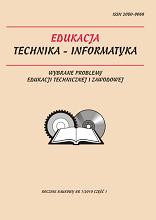Edukacja przygotowująca do etycznych usług turystycznych
Education for ethical tourism and business ethics
Author(s): Vlado Galičić, Juraj PlenkovićSubject(s): Education
Published by: Wydawnictwo Oświatowe FOSZE
Keywords: education; ethical tourists; business ethics; management.
Summary/Abstract: The importance of general ethics is growing parallel to the ever-greater power of people and their ability to master different types of technologies. General ethics includes a number of special and individual disciplines, among which business ethics has recently emerged. Business ethics is becoming increasingly important in the theory and practise of optimising human activities. Based on the premises of general ethics, business ethics deals with and regulates human activities, particularly in the field of producing goods for public exchanges. The major issue with which business ethics is concerned revolves around not causing harm to others, while being successful, gaining a profit and increasing wealth. The motto of business ethics is „Do business in a way that nobody loses but everybody wins”. In the tourism trade, business ethics is increasingly gaining strength as a way of combating the decline of (tangible and intangible) service quality, reducing the number of cheated tourists, and stopping other deformations of true ethical creation under the principle „Do not do to others what you would not have others do to you”. Because an erratic market may lead to various deformations, particularly in the sphere of morality and interpersonal relationships, it is the task of business ethics to raise awareness of the fact that, in the long run, success cannot be achieved by breaking basic moral principles. This paper’s objectives focus on the need for improving the overall educational process in the field of business ethics, with special emphasis on tourism, as a leisure industry and an industry whose effects represent a platform of economic security in many countries.
Journal: Edukacja - Technika - Informatyka
- Issue Year: I/2010
- Issue No: 1
- Page Range: 139-150
- Page Count: 12
- Language: English

